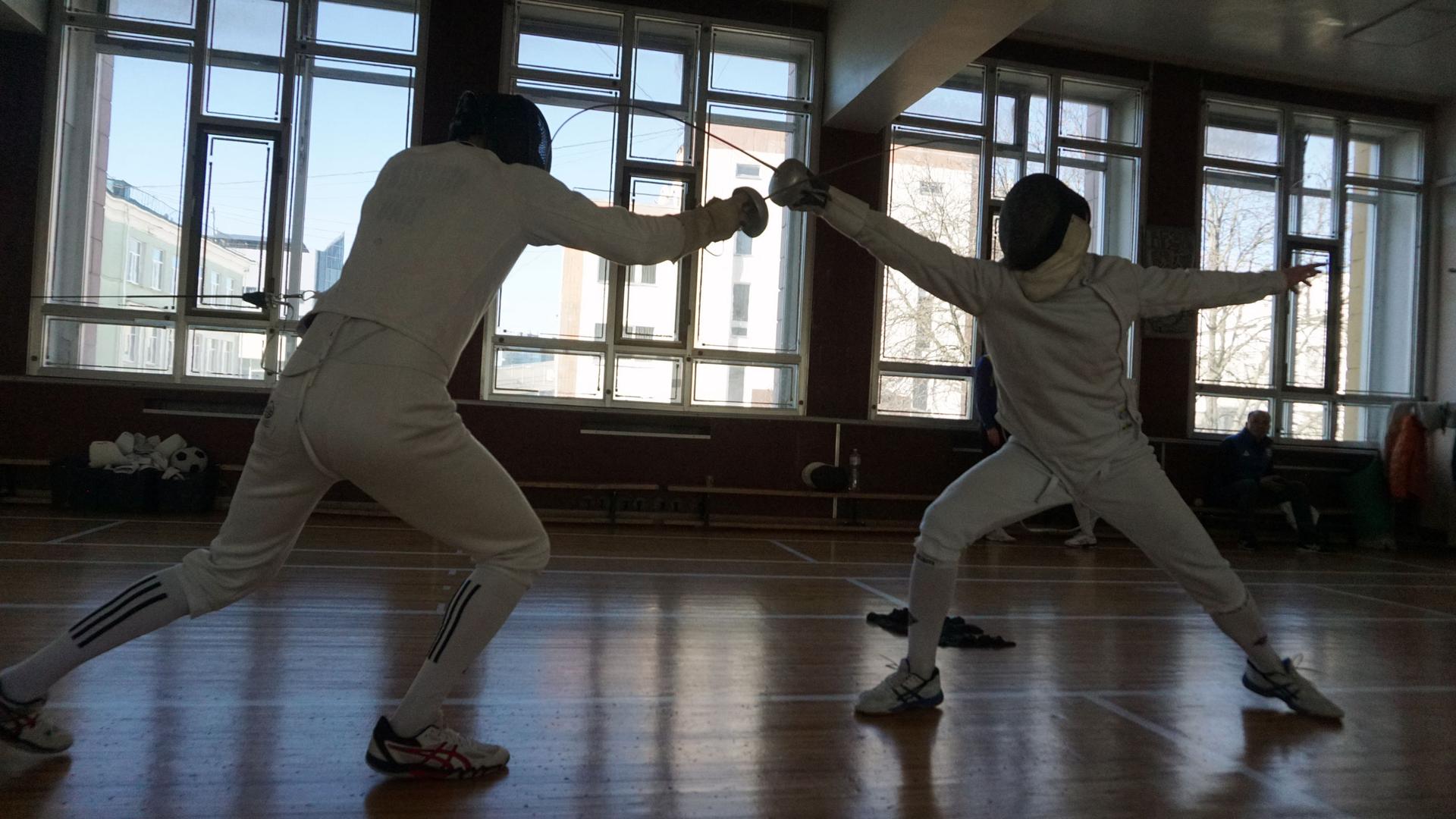Ukrainian fencer Darya Varfolomeyeva, 23, started fencing when she was just 11 years old.
“My mom told me if you want to do trainings, you have to do all your homework and only after that you can go to do your training. So, I did my homework between lessons, just to have more time, every day was the same,” she said.
Today, she trains with Ukraine’s national fencing team at a gym at the National University of Physical Education. Varfolomeyeva said she hopes to qualify for the Summer Olympics in Paris next year.
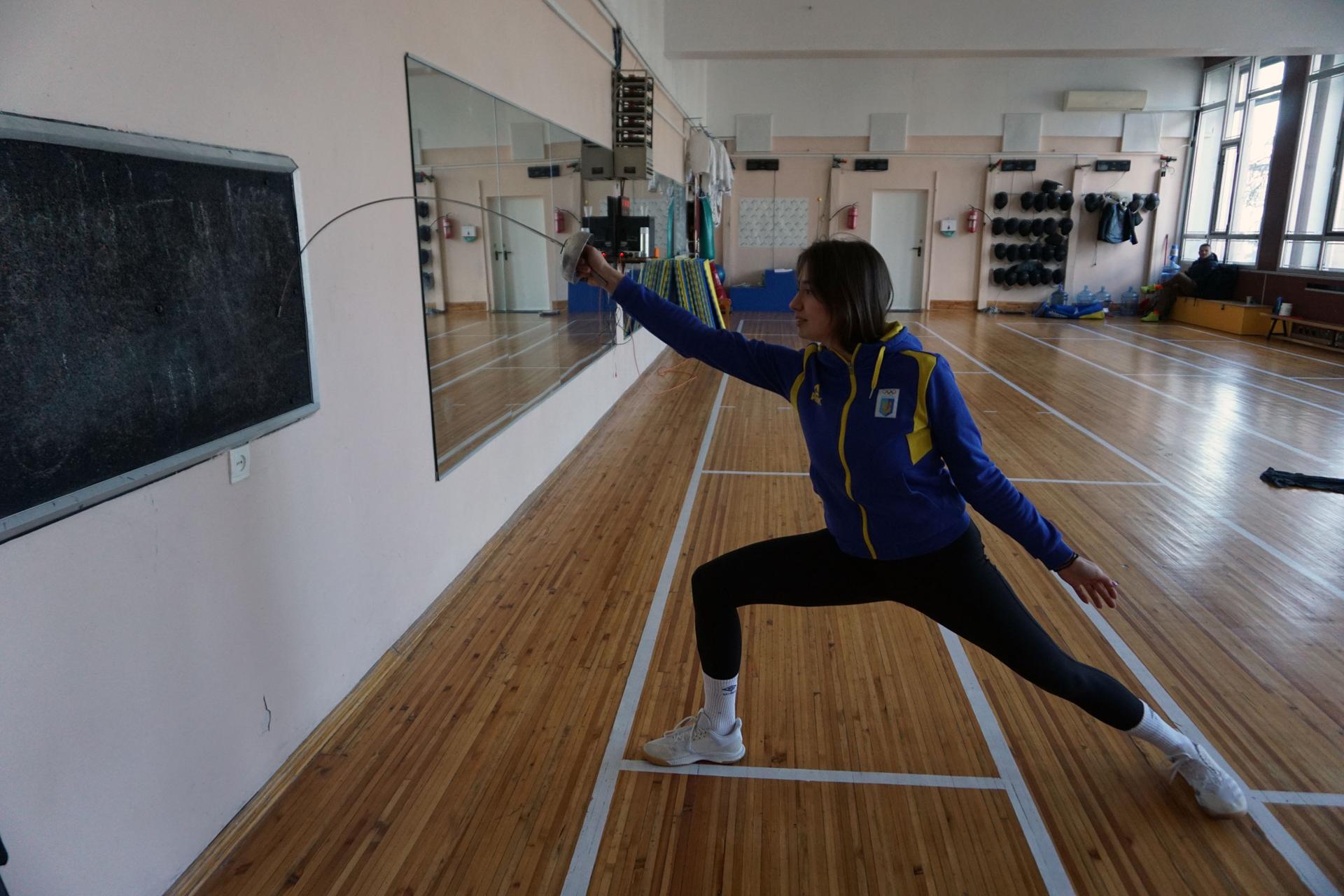
But the past year has not been easy for Varfolomeyeva, who hails from Uzhhorod, Ukraine. A few days after Russia invaded Ukraine on Feb. 24, Varfolomeyeva’s mother asked her to take her sister and go abroad. They reached Prague, where they could stay with a relative.
Varfolomeyeva soon started training for a competition in Budapest, where she was welcomed by coaches and fellow fencers who bought her new fencing equipment.
But as the war continues, so does the stress. And on the other side of the conflict are the Russian athletes: It is uncertain whether or not Russian athletes will also be allowed to compete next year in the Olympics. Ukraine’s president has said that Russia should not be allowed to use the Games to “promote aggression.”
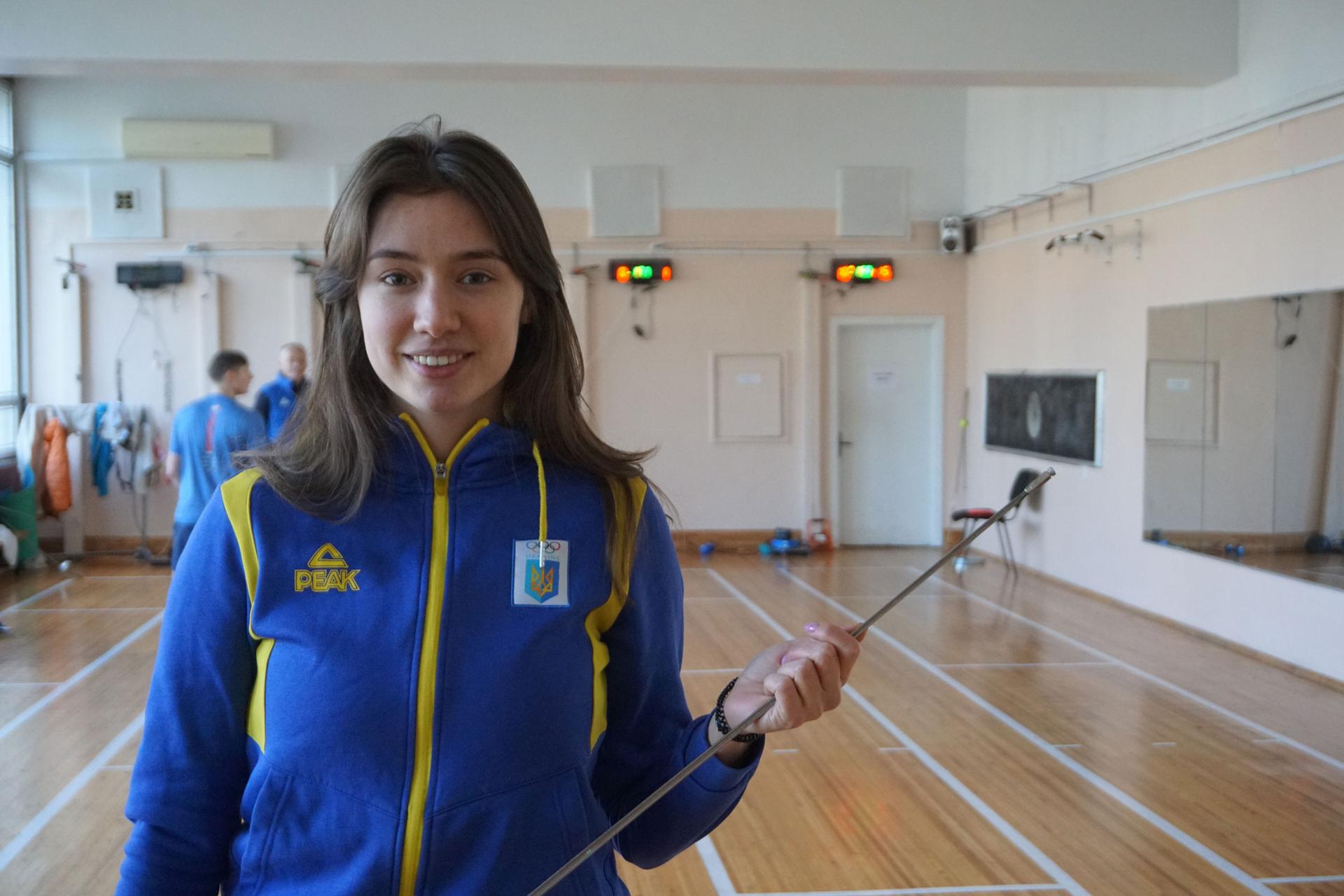
Russia is currently under heavy international sanctions and Russian athletes have already been banned from some international sporting events like Wimbledon in 2022.
But Thomas Bach, president of the International Olympic Committee, insists that these decisions should not get politicized.
“Governments should not decide on political grounds who is participating in which sport event,” he said, adding that qualifications must be on merit — not on politics.
In the past, when Russia had been penalized, its athletes have been allowed under certain circumstances to compete in the Olympics under a neutral banner — just not the Russian flag.
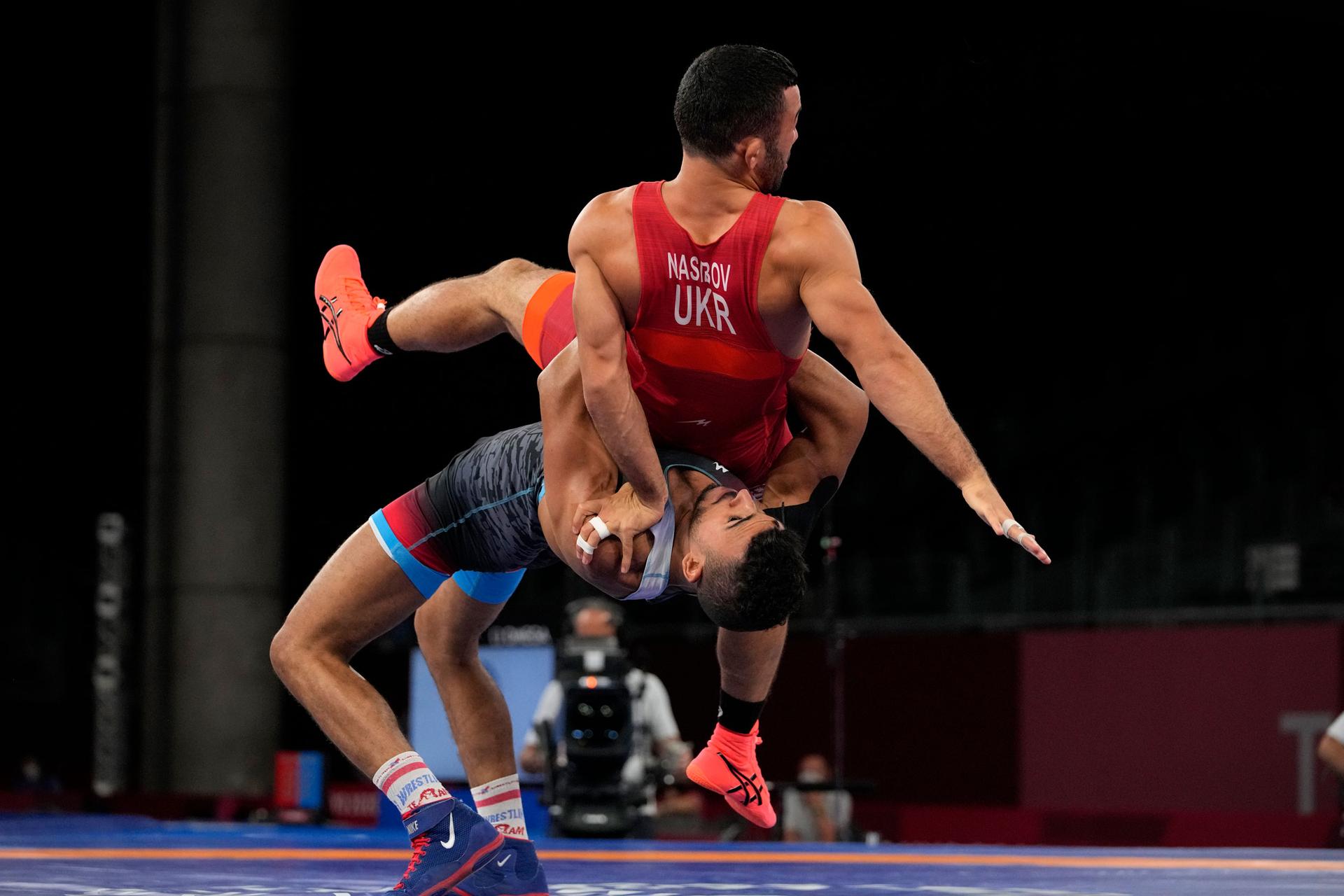
On the outskirts of Kyiv, at an Olympic training facility, Greco-Roman wrestler Parviz Nasibov is also getting ready for the 2024 Summer Games.
He won a silver medal at the last Summer Olympics in Tokyo.
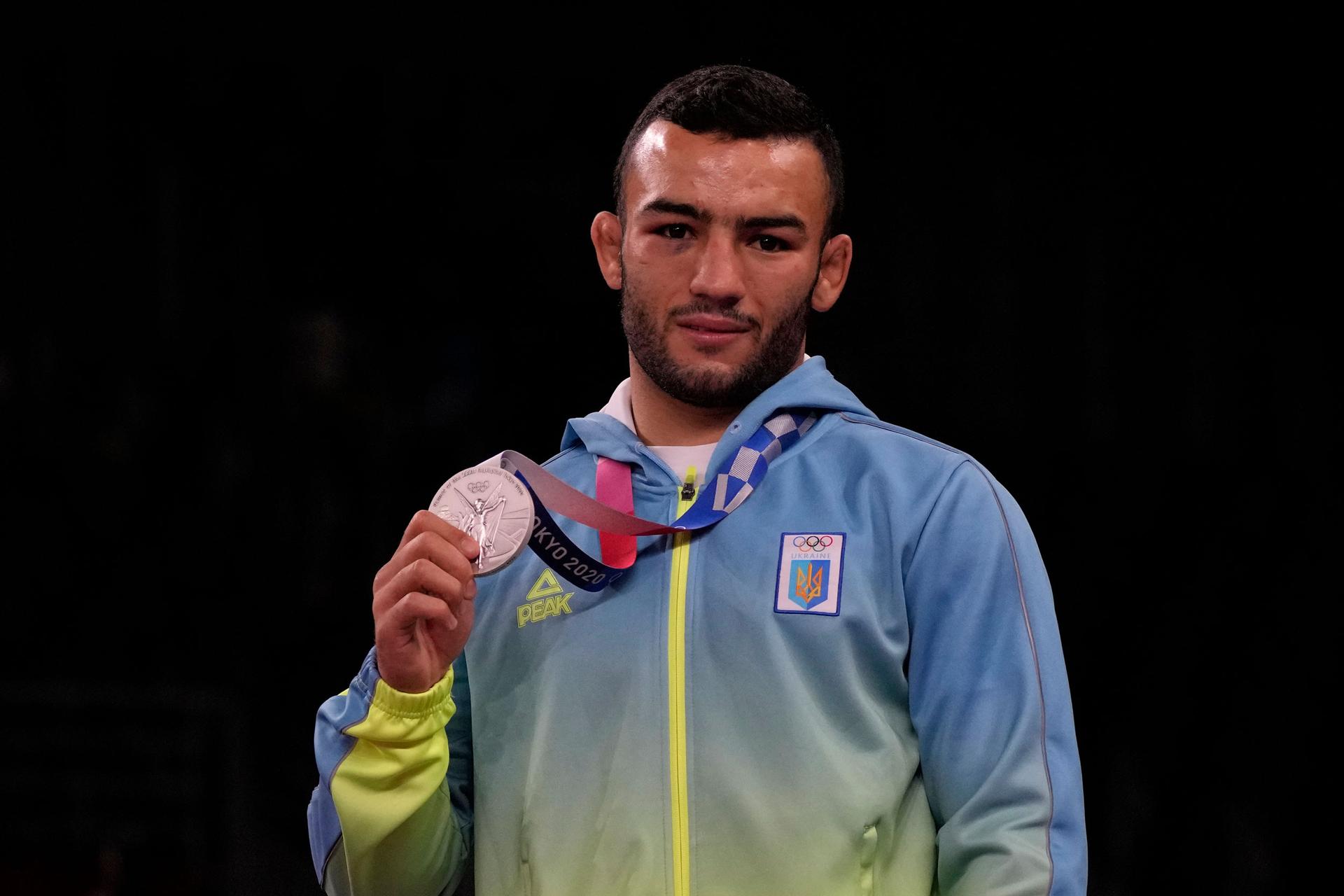
Despite all the training, he said that right now, sports do not hold the same importance to him as they used to.
Instead, he finds himself thinking about friends who have died in the war, or those still serving in Ukraine’s armed forces.
“Of course it’s difficult,” he said, adding that his family fled to Germany and he has not seen them for three months.
But Nasibov said his goal remains the same — to win a gold medal in Paris.
And if Russian athletes are allowed to compete, he said, “we’ll just have to beat them.”
Editor’s note: Volodymyr Solohub contributed to this report.
